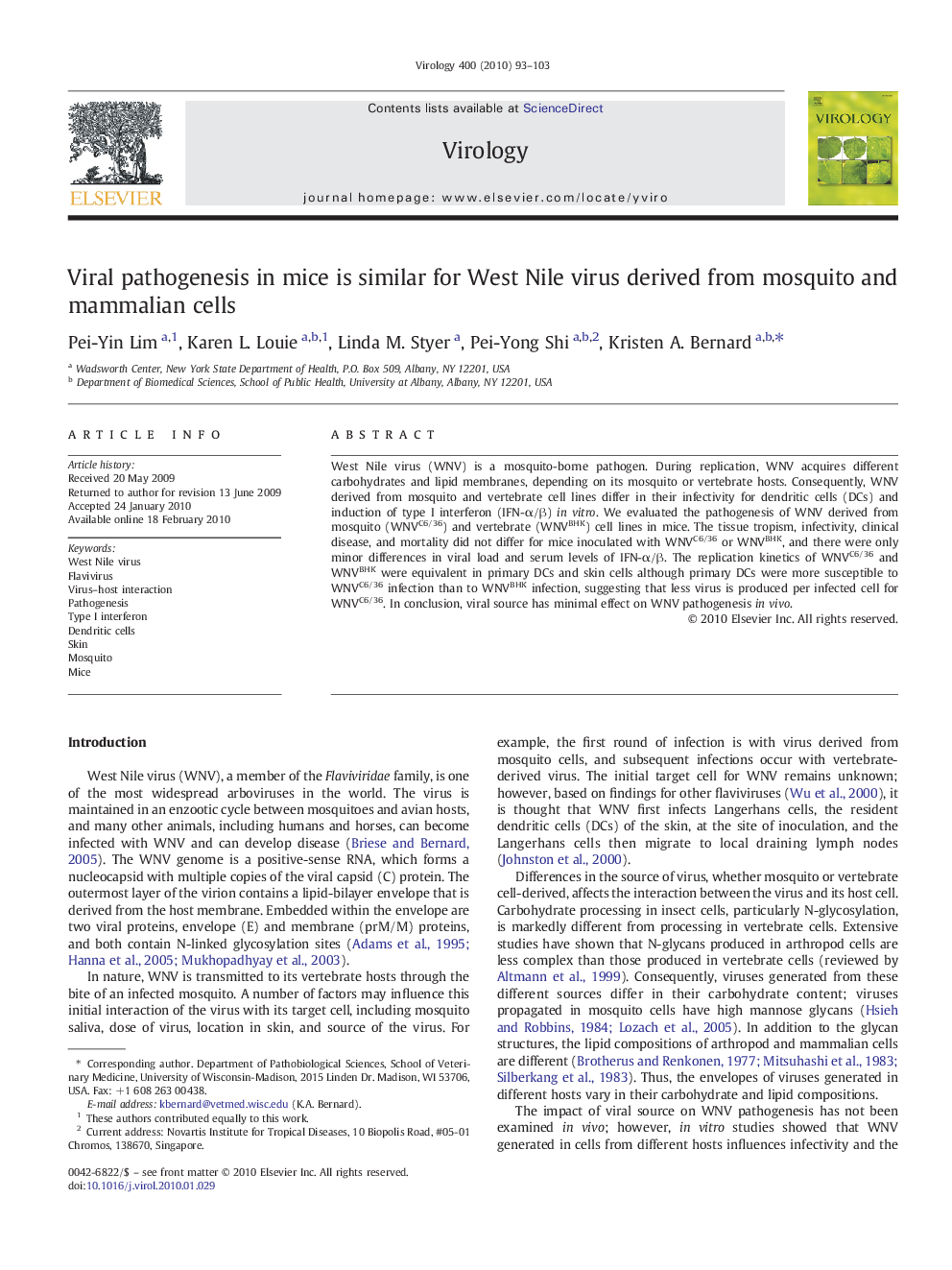| Article ID | Journal | Published Year | Pages | File Type |
|---|---|---|---|---|
| 3425122 | Virology | 2010 | 11 Pages |
West Nile virus (WNV) is a mosquito-borne pathogen. During replication, WNV acquires different carbohydrates and lipid membranes, depending on its mosquito or vertebrate hosts. Consequently, WNV derived from mosquito and vertebrate cell lines differ in their infectivity for dendritic cells (DCs) and induction of type I interferon (IFN-α/β) in vitro. We evaluated the pathogenesis of WNV derived from mosquito (WNVC6/36) and vertebrate (WNVBHK) cell lines in mice. The tissue tropism, infectivity, clinical disease, and mortality did not differ for mice inoculated with WNVC6/36 or WNVBHK, and there were only minor differences in viral load and serum levels of IFN-α/β. The replication kinetics of WNVC6/36 and WNVBHK were equivalent in primary DCs and skin cells although primary DCs were more susceptible to WNVC6/36 infection than to WNVBHK infection, suggesting that less virus is produced per infected cell for WNVC6/36. In conclusion, viral source has minimal effect on WNV pathogenesis in vivo.
